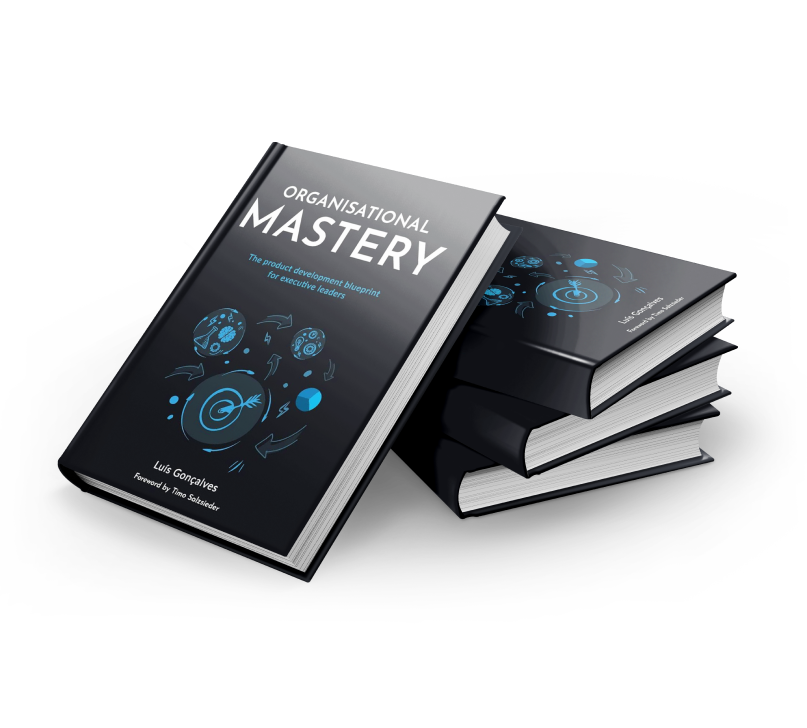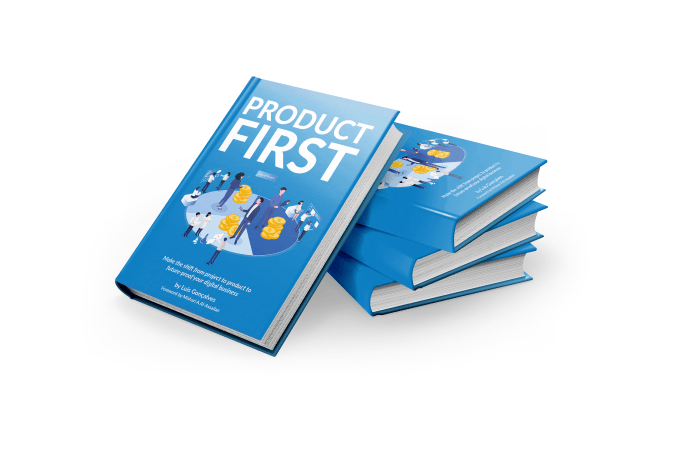Share this
The System Of OKR At Google
by Luis Gonçalves on Jan 13, 2024 5:54:05 AM
One of the most important skills that a modern leader can possess is the ability to align their entire workforce to the big vision of the company, that's why talking about OKR at Google is very important!
Remember that aligning your entire organisation is just a small skill set that you must possess in order to ADAPT your company to the digital era! If you are an executive leader looking to ADAPT your company to the digital era, check more about our approach by clicking the link: ADAPT Methodology™.
Google is one of the largest multinational technology companies in the world today. Apart from being a search engine, the technology giant has many products and services, with some being acquired or purchased over the years.
The secrets to Google’s success are numerous, but there is definitely one that cannot be overlooked called OKRs. This can be adopted by a company’s management. OKRs is an acronym for Objectives and Key Results.
OKRs was adopted by Google when the company was just a start-up. John Doerr, one of the company’s investors, introduced the system as a method of setting goals and achieving them. The system originated from Intel.
As a simple structure, OKRs is designed to aid individuals, teams and companies in setting challenging goals and attaining them through measurable actions. The system can also be applied to your personal life.
The Application of OKRs at Google
If you are looking to adopt OKRs the way Google utilises it, here are the steps:
Set a clear objective. Make sure you set clear, specific and measurable objectives for your company.
They shouldn’t be ambiguous. For example, saying that you want to improve your sales department is not an objective that expresses clarity. Rather, you should say “I want to improve our annual sales by 30%.” Next, set a number of “key results” which should all be measurable. These are the qualifiers that would tell you that your team has achieved its objective.
At Google, employees have 4-6 OKRs per quarter. It’s not healthy or productive to go beyond this threshold. This will be an impediment to focus. They also have OKRs at different levels such as personal, team and management. Everyone works together to ensure that their company is on track in terms of hitting their targets.
Google does OKRs yearly. Annual OKRs are the umbrella objectives where the rest of the individual and team OKRs can be patterned from. Even so, these OKRs are prone to changes as the year goes by.
An Actual Example of the Application of OKRs at Google
A great example of the application of OKR at Google is the one by Rick Klau.
An example of his OKRs is given below:
Note: The following example is not copied in verbatim.
Objective:
Improve the Reputation of Blogger
Key Results:
Reach out to Blogger users personally.
Set up a Twitter account for Blogger and personally update discussions regarding the product.
Speak at three events to re-assert Blogger’s leadership in the industry.
Coordinate Blogger’s 10th anniversary with massive PR (Public Relations) efforts.
Fix the DMCA process and get rid of the music blog takedowns.
Best Practices in OKRs
While measuring OKR at Google, it takes only a few minutes. They put extra effort in attaining personal goals without worrying about grades.
At the end of each quarter, employees grade their key results through a specific and quantifiable set of scales. The fact is that attaining a perfect score of “1” is not the goal.
The aim is to achieve a score of 0.6 or 0.7. The reality is that getting a score of “1” means that you are not doing your job particularly well, but deliberately underperforming to gain an unfair advantage.
On the other hand, a score of 0.4 indicates that an employee needs to look deeper into how they work. It could mean that you have to make adjustments to the existing processes or review the key results in order to realise the set objectives.
Having a low score means that employees need to think about a different approach to how they work. This is a vital aspect of OKRs. Basically, there is always room for adjustments and improvements.
It’s essential for any company especially in a world as dynamic as today’s business sphere.
The merit of OKRs is that it’s accessible to everyone from the head down to the frontline employees. It’s a part of their internal profile.
This is a transparent system that enables anyone to see what the goals and scores of others are. It helps everyone to understand what others are working on. With this, employees can get guidance on how to organise their OKRs for the next quarter or pattern their goals.
Conclusion
It’s important to note that OKRs can’t be used to determine promotions, but it is a part of the criteria. It has many merits as can be demonstrated by Google and other companies.
OKRs is appealing to many companies because of how simple and straightforward it is. It also promotes efficiency, transparency and a deep sense of responsibility. Individual OKRs are best executed under the guidance of supervisors or managers who should be able to give regular feedback and coaching.
Organisations that implement OKRs have their own processes and guidelines. It’s crucial to experiment on what techniques work best for your organisation. There is no universal approach to implementing OKRs.
Have you tried using OKRs in your organisation? How did it help your team? What are the best practices or procedures that you can share?
Did you like this article?
We enable leaders to become highly valued and recognized to make an impact on the World by helping them to design Digital Product Companies that will thrive and nourish in the Digital Age, we do this by applying our own ADAPT Methodology®.
If you want to know how we can help you to start your transformation please check out our: Training.
If you are interested in doing a transformation in your company please check out our: Consulting.
Share this
- Agile Methodologies (18)
- Product Strategy (18)
- OKRs (16)
- Scrum (16)
- Product Mindset (14)
- Project To Product (10)
- Agile Retrospectives (9)
- CoPs (9)
- Knowledge Sharing (9)
- Time To Market (8)
- Product Discovery (7)
- Continuous Improvement (5)
- Strategy (5)
- Scrum Master (4)
- Content Marketing Strategy (3)
- Product Owner (3)
- Technical Excellency (3)
- Digital Transformation (2)
- Innovation (2)
- Scaling (2)
- Team Building (2)
- Business Model (1)
- Cost Of Delay (1)
- Customer Feedback (1)
- Customer Journey (1)
- Customer Personas (1)
- Design Thinking (1)
- Digital Leadership (1)
- Digital Product Tools (1)
- Go To Market Strategy (1)
- Google Design Sprint (1)
- Lean Budgeting (1)
- Lean Change Management (1)
- Market Solution Fit (1)
- Organisational Impediments (1)
- Outsourcing (1)
- Product (1)
- Product Metrics (1)
- Product Roadmaps (1)

Organisational Mastery
Get your free copy

ADAPT
Get your free copy

Product First
Get your free copy
